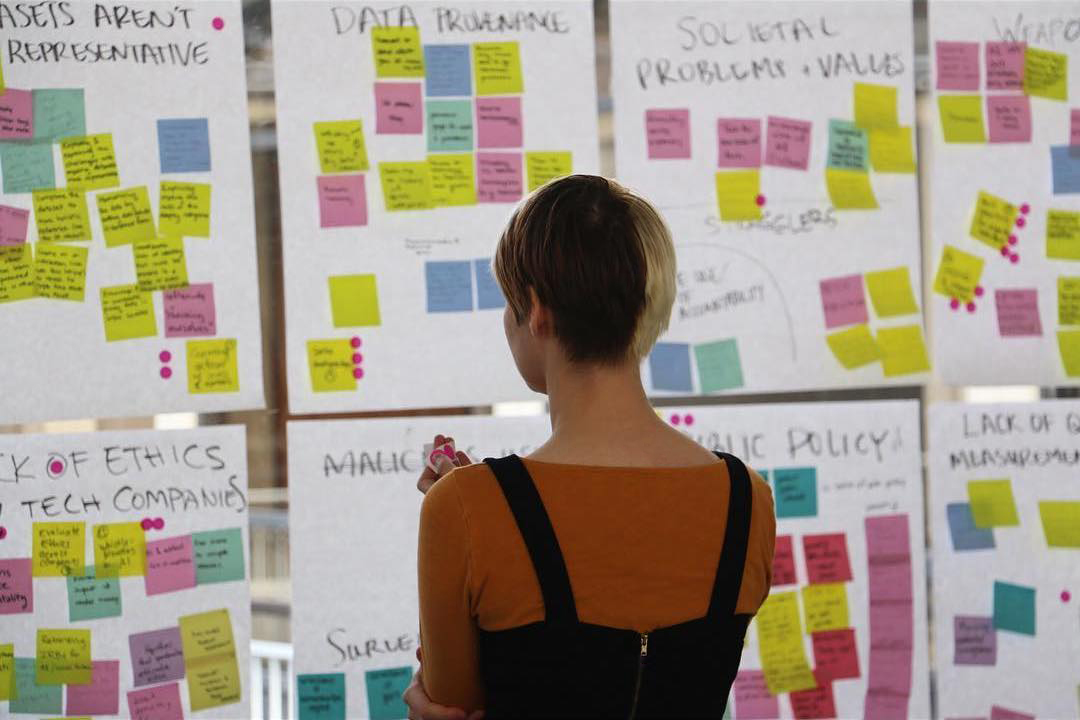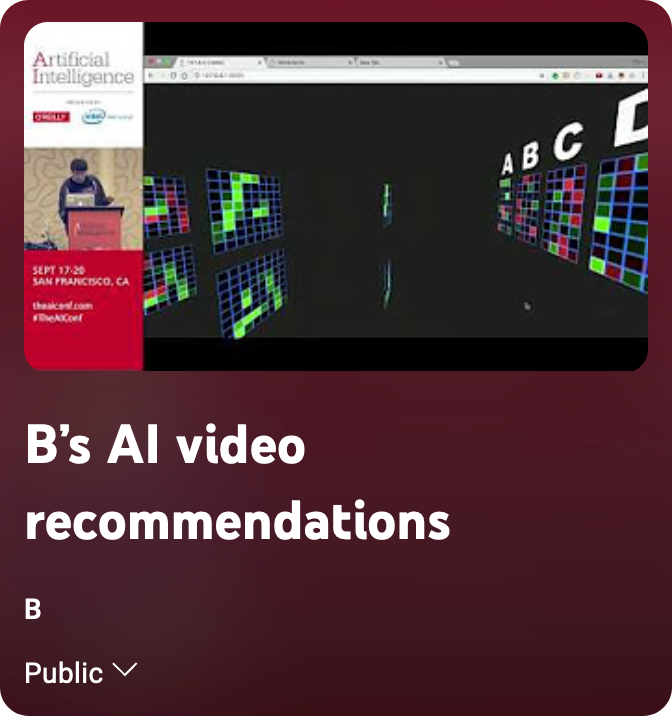How to get into AI policy (part 4)

I’m frequently asked for advice on how to break into the industry I’m in or how to achieve a position I’ve held. I’ve been privileged to serve in many interesting and varied roles across sectors, from small nonprofits and garage startups to huge multinationals and even the US Federal Government. While I personally owe a lot of my journey to privilege, luck, and the good graces of others, I know that “be lucky” isn’t particularly useful advice. In the spirit of providing something actionable, I’ve gathered here some reflections on things that I think have served me in my journey. I hope these reflections will be helpful for others on their journeys as well, and I encourage those with experience in this space to share more about their journeys, lessons learned, and advice too!
Note: For the purpose of this post, I’ll be talking about “getting into AI policy” and offering some specific examples, but most of these suggestions should hold regardless of what it is specifically you want to do. For more on entering the tech policy field, see my Emerging Technology Policy Careers profile.
This series comes in five parts:
- Mindset
- Be perceived
- Be the reply guy you want to see in the world
- Don’t wait to do the work
- Pay it forward (don’t skip this!)
Prefer to read everything as one long piece instead? i gotchu. 💖
Don't wait to do the work
“But B!” You might be saying. “You haven’t really said anything yet about what we need to know about AI or policy, in particular!” And you’re right. Most of what I’ve shared so far is kinda generic advice that could be applied to any number of fields or career paths. I share it because most of the time, when people reach out to me about how to get a certain job or follow a certain path, they haven’t done those things that I see as essential foundations, and that’s a great place to start.
But okay: you’ve figured out your mindset, you’ve been perceived, you are being the reply guy you want to see in the world, and you’re still wondering how to get into AI policy. What can you do?
In my opinion, the best thing you can do is… just get into AI policy! 😜
You don’t need permission. Where you can, begin engaging in the work of AI policy directly. Start close to home with something more familiar to get started. Attend a city council meeting on police use of facial recognition, go to a school board meeting about generative AI in schools, or start a conversation with your colleagues about cybersecurity and AI at work. You can also start sharing your perspectives on a blog or in op-eds or join an advocacy group to lobby policy decision-makers. In the US, the Federal Register often posts requests for information (“RFIs”) and opportunities for public comment. Share your actions with others and encourage them to participate and make their experiences and opinions heard, too.
AI policy decisions are happening every day in organizations big and small, in and outside of government. There are many organizations already at work on issues you care about that could use the extra help, even if you don’t have deep expertise in AI or policymaking. Your perspective as a person impacted by these issues is valuable, too! Jumping right into AI policy doesn’t mean pretending like you know stuff that you don’t or acting like a jerk. If you can manage to show up consistently on an issue; be humble, open-minded and kind; and take good notes, you might be surprised how far that can take you.
I want to say this with extra emphasis:
don’t be afraid to join someone else’s effort.
There’s a tendency in American society to heroize “founders” and “visionaries” and people who start things from scratch. Starting stuff is cool and all, but I actually believe this (over)emphasis on new things results in a bunch of wasted effort. Starting stuff doesn’t just take hard work, it takes infrastructure. Things like branding, documentation, and, often, a lot of legal paperwork. These are critically important things that take time and energy—time and energy that could instead be spent, for example, working on AI policy!
Movements are made by people joining each other. Joining an existing organization, group, community, or initiative often builds greater power and advances goals more effectively than starting off on your own. Even if you are a founder, (like my LinkedIn analytics says a major demographic you are 😜) if you want to convince people to join you, a great way to do that is to show up for them. You’ll learn a ton. Plus joining a team lets you share in the work and the wins. And that’s just fun!
But maybe you don’t feel ready to jump in, just yet. You want to get a little more familiar with the space first. That’s cool, too. It’s great to build a foundation of learning, and there’s a wealth of material to learn from. There are tons of amazing opportunities to read up on these issues and many videos and podcasts available for free online. Try checking out the public lectures or events of a couple different universities (compare how Harvard’s Berkman Klein Center approaches these topics to Stanford’s Institute for Human-Centered AI) or subscribe to one of the many excellent newsletters on tech and policy. (Some highlights: Platform Economy Insights, Tech Policy Press, or even my employer Aspen Digital!)

For machine learning and AI essentials, I put together a Youtube playlist of different talks and explainers (and I really can’t recommend enough 3blue1brown’s series on the topic). I really do think all of this stuff is best learned in community, though, with other people who you can ask questions and who can challenge your own understanding and assumptions. (Remember: AI policy is a team sport!) See if you can recruit a couple of friends or colleagues to join you in your learning journey or join them on theirs, and then share your learnings with the world as you go.
There are tons of great resources for learning about AI and policy. I can’t possibly name them all here, so I’ll be a little shameless and plug my team’s work on these Emerging Tech Primers to get you started. I also strongly recommend checking out the Emerging Tech Policy Careers page on AI. For more current events-type reading, check out Sarah Shirazyan’s Trust | Safety | Law AI reading list or Casey Fiesler’s remarkably prompt AI Ethics News.
There are also some fantastic fellowship programs dedicated to helping people like you learn and transition their skills. These programs can teach you to make policy impact and to foster greater collaboration between the diversity of AI policy stakeholders. I’ve gotten to experience a few of these, myself, and they were truly life-changing!
Fellowship programs to check out:
- Aspen Tech Policy Hub teaches a new generation of policy entrepreneurs about the policy process through fellowship and executive education programs and encourages them to develop outside-the-box solutions to society’s problems.
- Horizon Institute for Public Service places fellows at host organizations to help tackle policy challenges related to artificial intelligence, biotechnology, and other emerging technologies.
- Mozilla provides fellows opportunities to develop new thinking on how to address emerging threats and challenges facing a healthy internet.
- TechCongress gives talented technologists the opportunity to gain first-hand experience in federal policymaking and shape the future of tech policy through our fellowships with Members of Congress and Congressional Committees.
And when you’re ready, the All Tech is Human and 80,000 Hours job boards have tons of opportunities for you to apply to, keeping in mind that many jobs are never posted so you’ll want to be on people’s radars.
But I really can’t recommend enough just getting started where you are. Start small. Start with what you know. Look for allies, and don’t underestimate the power of just showing up and taking notes.
And once you get there…
Next up: Pay it forward (don’t skip this!)
